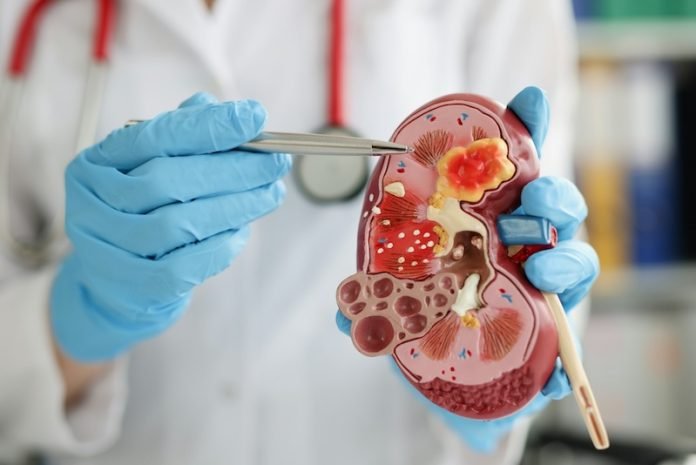
High blood pressure, often called the “silent killer,” is a common health issue affecting millions of people worldwide.
It’s dubbed silent because it can quietly damage your body for years before symptoms become apparent.
One of the lesser-known, yet significant impacts of high blood pressure is its effect on the kidneys.
This connection is crucial to understand, as it highlights the importance of managing blood pressure not just for your heart’s sake but also to protect these vital organs.
The kidneys are our body’s filtration system, cleaning the blood and removing waste and extra fluids in the form of urine. They also help control blood pressure and ensure our body has enough red blood cells.
High blood pressure can harm the kidneys’ ability to perform these essential functions over time, leading to long-term damage that might necessitate dialysis or even a kidney transplant.
Research evidence underscores the strong link between high blood pressure and the risk of developing chronic kidney disease (CKD). Chronic kidney disease means your kidneys are damaged and can’t filter blood as well as they should.
This damage can cause wastes to build up in your body and can lead to other health problems. The damage caused by high blood pressure occurs over time and through a combination of factors.
High blood pressure can narrow, weaken, or harden the arteries around the kidneys, reducing blood flow to these organs.
This impaired blood flow can lead to a dangerous cycle where the kidneys signal the body to raise blood pressure even further, worsening kidney damage in a feedback loop.
Numerous studies have shown that effectively managing blood pressure can significantly reduce the risk of developing CKD.
For example, a landmark study published in the New England Journal of Medicine demonstrated that individuals with hypertension who maintained their blood pressure at or below the recommended levels had a markedly lower rate of kidney function decline compared to those who had higher blood pressure levels.
Preventing high blood pressure from damaging the kidneys is a matter of controlling blood pressure through lifestyle changes and, when necessary, medication.
Lifestyle modifications such as eating a healthy diet low in salt and processed foods, maintaining a healthy weight, getting regular exercise, limiting alcohol intake, and quitting smoking can all contribute to lower blood pressure. For some, medication may be necessary to keep blood pressure in check.
In conclusion, the connection between high blood pressure and long-term kidney damage is both significant and preventable.
By understanding the risks associated with uncontrolled blood pressure and taking steps to manage it, individuals can protect their kidneys and reduce their risk of chronic kidney disease.
This underscores the importance of regular blood pressure monitoring and working closely with healthcare providers to maintain blood pressure within a healthy range.
Through awareness and proactive management, the silent threat of high blood pressure to kidney health can be mitigated, leading to healthier lives and brighter futures.
If you care about blood pressure, please read studies about unhealthy habits that could increase high blood pressure risk, and eating eggs in a healthy diet may reduce risks of diabetes, high blood pressure.
For more information about blood pressure, please see recent studies that early time-restricted eating could help improve blood pressure, and results showing 12 foods that lower blood pressure.
Copyright © 2024 Knowridge Science Report. All rights reserved.



